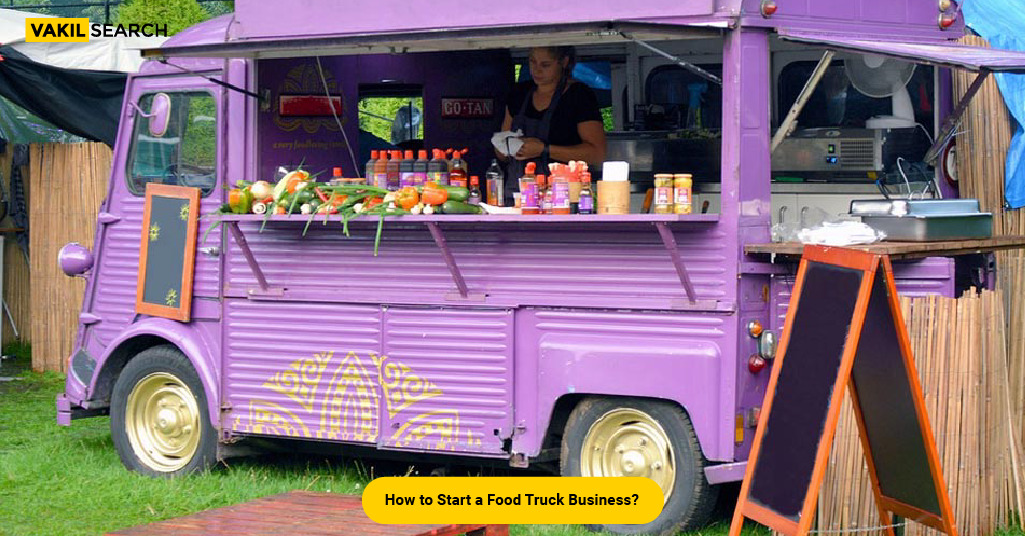Entrepreneurs looking to enter the food industry now have a lot of options, including food trucks. Careful preparation and execution are necessary when starting a food truck business. We will give a general overview of the food truck industry in this blog, along with information on the licenses needed, the equipment needed, the investment plan, the steps involved in beginning a business, the benefits of launching a food truck, and how to market your brand.
A well-liked trend in the food sector, food trucks give business owners a cost-effective and adaptable substitute for conventional brick-and-mortar eateries. Although it can be an exciting venture, starting a food truck business involves careful preparation and execution. Everything you need to know to launch your own food truck business will be covered in this blog.
Mobile kitchens that serve a variety of foods to consumers are called food trucks. These trucks can be seen during gatherings, festivals, marketplaces, and other busy places. The food truck industry provides entrepreneurs with a flexible and affordable way to launch their food businesses.
Licenses Required for Food Truck Business
You must acquire the required licenses and permits before launching a food truck business. Depending on where you are and what kind of cuisine you will be providing, these may change. Several frequent licenses and permits are as follows:
- Business licence: To run any kind of business idea in your area, you must have this licence.
- This permit is necessary to make sure that your food truck complies with health and safety laws.
- Obtaining a food service establishment permit is necessary if you intend to cook meals on your truck.
- Fire Certificate: You need this certificate to prove that your food truck complies with fire safety laws.
Equipment Required
Depending on the type of food you intend to offer, different equipment may be needed for a food truck operation. Some necessary tools include:
- Utensils for cooking, such as a stove, grill, fryer and oven.
- Cooling equipment: This could include a freezer, refrigerator, and cold storage.
- Among the serving tools are a counter, several shelves, and a cash register.
Simplify your business set up costs with our startup cost calculator. Get precise estimates for your new venture!
Investment Plan
Several elements, such as the kind of cuisine you intend to sell, where your business will be located, and the size of your truck, will affect the amount of money needed to launch a food truck business. The following are some typical startup expenses for a food truck business:
- Truck purchase or lease
- Equipment purchase
- Licenses and permits
- Insurance
- Food and supply costs
- Marketing and advertising expenses
Procedure to Start a Food Truck Business
Here are the steps to follow to start your food truck business:
- Develop a business plan that includes your goals, target market, and financial projections.
- Obtain the necessary licenses and permits.
- Purchase or lease a food truck.
- Equip your truck with the necessary equipment.
- Hire staff if necessary.
- Purchase food and supplies.
- Promote your business through marketing and advertising.
Features of Starting a Food Truck
Starting a food truck business has several advantages, such as:
- Comparable to a conventional brick-and-mortar restaurant, low startup costs.
- flexibility to relocate your business as needed in other locations.
- the capacity to target particular events and audiences.
- Due to reduced overhead expenses, there is the potential for great profitability.
Brand Awareness & Promotion
To grow brand awareness and draw in new consumers, marketing is essential for food truck businesses. Here are some suggestions for promoting your company:
- Social media promotion: Use social media sites like Twitter, Facebook, and Instagram to promote your menu, share photos of your food, and interact with customers.
- Attend events and festivals: Attending events and festivals for food trucks is a terrific method to gain more exposure and attract more consumers.
- Create a website: Make a website to display your menu, address, and phone number.
- Offer discounts and promotions: Offering discounts and promotions might draw in new clients while luring back your devoted following.
- Use local directories: Make it easy for customers to find your food truck business by adding it to local directories like Yelp and Google My Business.
Conclusion
Starting a food truck business may be a rewarding and successful endeavour. But it necessitates meticulous preparation and execution. We gave a general overview of the food truck industry in this blog, as well as information on the licences needed, the equipment needed, the investment plan, the steps to establish a business, the benefits of beginning a food truck, and how to market your brand. To draw in new clients and cultivate a devoted following, keep in mind to implement these strategies and advertise your business continuously. I wish you well with your food truck venture!
Also, Read:




